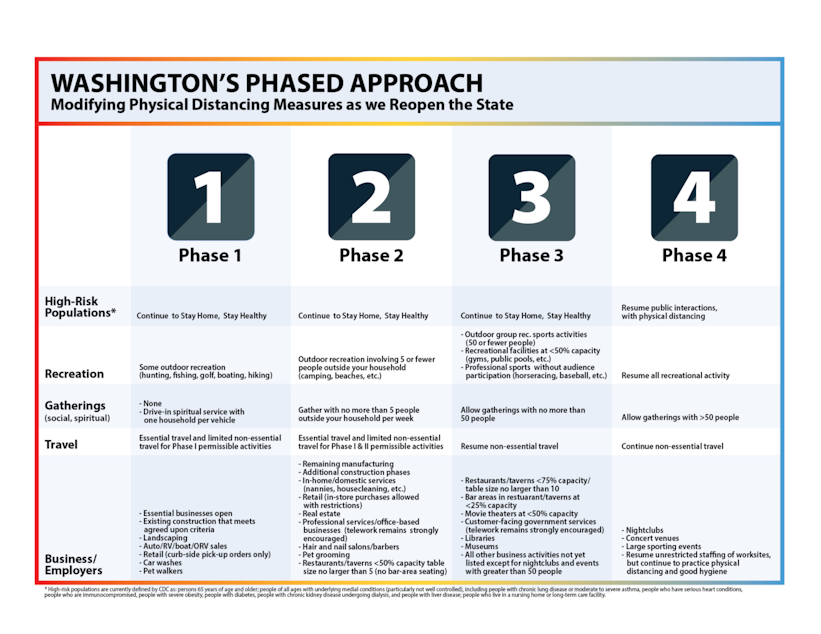King County braces for reopening rollbacks despite vaccination progress

Washington state is in a fourth wave of Covid-19 cases and hospitalizations. For King County and other counties around the state, that is likely to result in a return of tighter restrictions. KUOW’s Kate Walters gave Kim Malcolm this update.
This interview has been edited for clarity.
Kim Malcolm: King County is in Phase 3, which means we've been seeing more people able to sit inside restaurants and go into retail stores operating at 50% capacity, but we’ve been watching our Covid cases go up. What do we know about where we're headed?
Kate Walters: The state is doing the next assessment of counties early next week. They do these regular assessments where counties have to be under certain thresholds, for both cases and hospitalizations, to be able to stay in Phase 3. What we're hearing is that it's likely that King County is going to roll back. Here's Seattle and King County Director of Public Health Patty Hayes speaking to the county council:
“Barring something different coming from the governor, we should expect that the announcement next week will be that King County will be moved back to Phase 2. We might as well just get prepared for that and not just wait. “
Remind us, what would a rollback to Phase 2 mean?
Sponsored
It means lower capacity indoors. For restaurants, other businesses, churches, fitness centers, they would go from being able to have that 50% capacity that you mentioned to 25% allowed indoors.
Vaccines are a big part of getting this virus under control. How is Washington doing as a state overall?
We passed another milestone recently of 5 million doses administered across the state. Officials are saying that more than 3 million people have now had at least one dose in Washington. They say we have the capacity to vaccinate all those who are eligible, but what it really is coming down to is supply of the vaccine and demand within the community.
I remember when you had to pounce on an online appointment. That doesn't seem to be the case now. What's going on?
I think it depends on where you are in the state. Supply and demand look a little different in different counties. On the demand side, for instance, we're seeing that some places like King County have really great uptake of the vaccine and a lot of demand. We've seen that from the start.
Sponsored
In other places, they are really struggling. That could be because of hesitancy. It also could be because of things like access issues. State officials are saying that they need to make it a little easier with longer hours or help with transportation for some folks.
Michele Roberts is with the State Department of Health. She says they've probably reached most people who are going to be early adopters of this vaccine. Now what they've got to do is do the work to reach people who are hesitant, and also to make sure that this vaccine is easily accessible:
“There's a lot of people who are ready to be vaccinated, but maybe because of their work schedule or just other things, they're probably not going to go out of their way to get it. And so it's our job to figure out how do we make it easy, what incentives, what information, who can talk to them about vaccines, what questions and concerns they have?”
On the supply side, the State Health Department says that Washington will be getting roughly 400,000 doses next week. Also, the Johnson & Johnson vaccine is now back on the table. That's a really small portion of our state supply, but it does add doses.
So, vaccination efforts are continuing, but at the same time we've been seeing Covid cases and hospitalizations related to those cases continue to go up. What are state officials saying about that?
Sponsored
They're saying it's concerning. We're seeing cases going up in all age groups, except people over 60. The sharpest increases are in younger populations. The hospitalization rates are also going up. We're seeing this across the state.
They noted that people over 65 who are not vaccinated are being hospitalized at nearly 10 times the rate of those in their age group who are vaccinated. That's pretty startling.
We heard earlier this week that we're seeing younger people across the state, people in their 30s, 40s, and 50s, with severe disease ending up in the hospital as well.
Listen to the interview by clicking the play button above.





